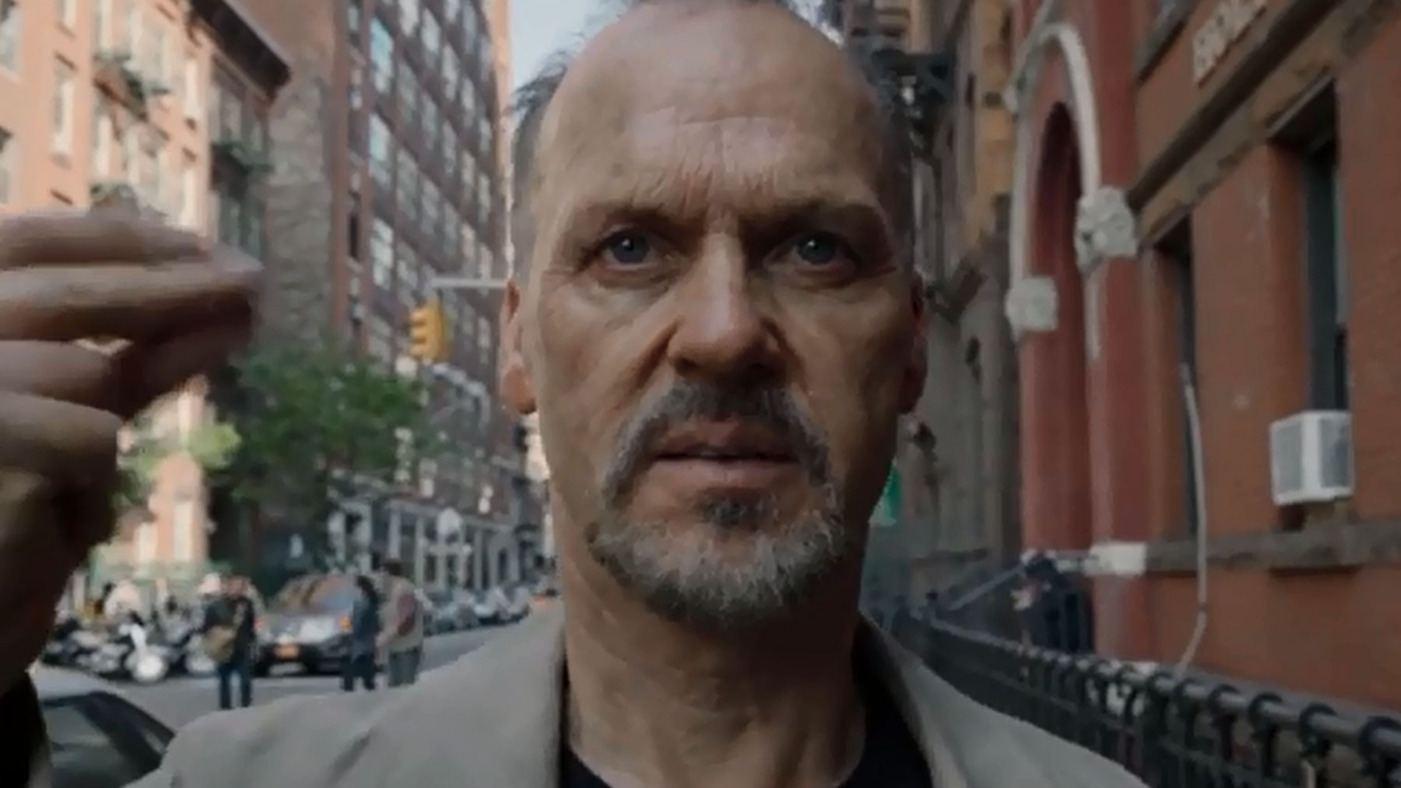Michael Keaton is a washed up star of a megafranchise trying to relaunch his career. Riggan Thompson, the star of Birdman (a superhero franchise), is attempting a Broadway play to relaunch his career. I wonder if it was hard for Michael Keaton to relate to his character. Keaton’s performance anchored by director Alejandro G Inarritu’s superb direction give Birdman a kineticism that propels the movie for its entire running time. That, and Keaton in his tighty whities walking through Times Square.
Riggan Thompson (Keaton) is staging a Broadway play to drag his acting reputation from the gutter. However, attacks are coming from all sides. His stars Lesley (Naomi Watts) and Laura (Andrea Riseborough) are getting nerves before their first live show. Newcomer Mike (Edward Norton) is a drama queen Type-A trying to push the show in his direction and demanding resources that Riggan’s manager Jake (Zach Galifanakis) can’t obtain. Finally, Riggan’s fresh out of rehab daughter Sam (Emma Stone) is pissed at how crappy Riggan was to her growing up and getting overly flirtatious with Mike.
Inarritu is the real star of Birdman. Theater behind the scenes is a constantly moving entity, with people moving location to location surrounded by controlled chaos. Inarritu shoots Birdman in what appears to be one long take. We travel from scene to scene through the halls of the theater or streets of New York City from one character to the next. The smooth transitions function as a plot propeller, launching the story forward. Even during intimate one on one scenes, the camera is always moving, taking in multiple angles. Some of the flourishes threaten to be too manipulative, but Inarritu usually pulls back before the quirkiness threatens to come off the rails.
New York City is the great polarizer for the wanna be actor. If you’re great, you’ll be celebrated like a god, but if you suck, you’ll be openly shunned and vilified by critics and actors alike. Birdman posits that blockbusters are to the theatre what major labels are to the music industry: the sell out indicator. The theme running under Birdman is one of value. Riggan is trying to be valued by the acting community he feels he belongs to. Mike wants to be valued by people he cares about but would never admit to loving. Sam wants to be valued by her dad. You get the picture. This theme gives the franticism of the direction dramatic stakes; with only a few days to the Broadway premiere, there is precious little time to earn the respect everyone in the film is craving.
Michael Keaton’s been slowly coming back from his dry spell after Batman/Beetlejuice; a Toy Story here, a Will Ferrell movie there. Birdman thrusts him back into the spotlight, asking a great deal from the weird funnyman to carry a very serious film that has spurts of comedy thrown in. Keaton is up to the task and then some; his weird facial tics and ability to dial down his crazy give Riggan Thompson an unpredictable quality with an undercurrent of fear, anger, and sadness. It’s probably Keaton’s meatiest role, and he nails it. Edward Norton (Hulk) gets the most New Yorkey role as the terse narcissist Mike. Birdman’s strongest segments involve Norton, and the movie suffers a little when it focuses so much on Keaton’s character, and yes, he still can take a punch. Zach Galifanakis (Hangover), Naomi Watts (King Kong), Emma Stone (Spider-Man), and Andrea Riseborough (Oblivion) all bring their franchise participation to the small stage and give texture to the story, with Stone and Watts getting the most satisfying arcs.
Birdman suggests to actors that franchises and blockbusters can be seen in two ways: a pay check or a reward for being considered great. As much of a draw the theater is to show “truth,” franchises are the best way to show how “loved” you can be since the films are seen by millions. I don’t know which is right, but I do feel worse for the theater folk. Critic power is much too strong in that sector, giving people with faux hubris even bigger heads. I’ll stick to my little movie corner, thank you.

